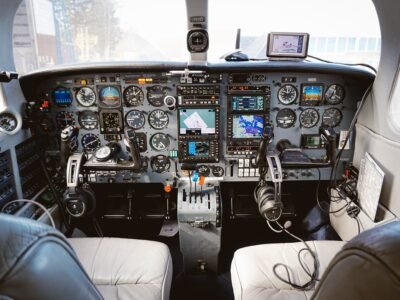An airline pilot is a pilot who works for an airline to transport cargo and passengers on flights both foreign and domestic. An airline pilot can fly for either commercial, business, or leisure purposes. Flights will typically consist of two airline pilots controlling the aircraft with one being the captain and the other being the supporting co-pilot.
Airline pilots are responsible for the safety of their vessel, cargo, and passengers. They must operate navigational devices while flying as well as communicate effectively with crew members. As such, an airline pilot must possess a strong combination of technical and interpersonal skills along with knowledge of special operation subjects like AWO, PBN, EDTO, RVSM etc.etc.
Responsibilities
Airline pilot responsibilities may include:
-
Keeping and reviewing maintenance logs
-
Performing an overall check of the aircraft before and after every flight
-
Operating navigational devices
-
Communicating clearly and effectively with crew members
-
Communicating a sense of trust and competency to passengers
-
Creating a flight plan based on weather, fuel levels, distance, etc.
-
Handling emergencies both internal and external as they arise
Skills
Airline pilots are expected to keep a level head while providing safe passage for their aircraft. In order to effectively provide a safe and pleasant experience, a skilled airline pilot will:
-
Provide direction and make decisions in case of emergency situations
-
Operate on a strict schedule
-
Follow strict procedures and protocol to ensure the aircraft is safe
-
Stay focused on following the flight plan during long shifts
-
Provide clear and friendly communication as needed
-
Work with one or several other co-pilots
************************************
CONTACT US
Course Features
- Lectures 64
- Quiz 0
- Duration 50 hours
- Skill level All levels
- Language English
- Students 33
- Certificate No
- Assessments Yes
Curriculum
- 6 Sections
- 64 Lessons
- 10 Weeks
Expanse all sectionsCollapse all sections
- RVSM (Reduced Vertical Separation Minimum)12
- 1.1Definition & Advantages
- 1.2RVSM – Indian FIRs
- 1.3Approval Requirements for RVSM
- 1.4Aircraft Systems
- 1.5Check
- 1.6Procedures
- 1.7Weather Deviation Procedures
- 1.8Special Procedures to Mitigate Wake Turbulence30 Minutes
- 1.9Procedure for Air-Ground Communication Failure
- 1.10Radar Procedures
- 1.11Contingency Scenarios
- 1.12Phraseology related to RVSM Operations
- EDTO (Extended Diversion Time Operations)15
- 2.1General EDTO (Extended Operations)
- 2.2EDTO Significant Systems
- 2.3Definitions and Terminology used in EDTO Operations
- 2.4Area of Operation
- 2.5Diversion Strategy
- 2.6EDTO Fuel Requirements
- 2.7EDTO Fuel Planning
- 2.8EDTO Critical Fuel Planning
- 2.9Enroute Alternate Aerodrome Planning Minima for Dispatch
- 2.10Minimum Equipment List (MEL)
- 2.11Flight Dispatch Procedures
- 2.12Procedures for Operating EDTO Flight
- 2.13EDTO Regulations
- 2.14Procedure for Getting Relevant Data for Operational Approval Purposes
- 2.15Conclusion
- PERFORMANCE BASED NAVIGATION (PBN)7
- Runway Markings & Lighting13
- 4.1Blast Overrun Area
- 4.2Markings – Day
- 4.3Threshold Markings
- 4.4Aiming Point Marker
- 4.5Runway Markings
- 4.6Aerodrome Reference Code
- 4.7VOR Aerodrome Check Point Markings
- 4.8Runway Holding Position Markings
- 4.9Rapid Exit Taxiway
- 4.10Runway Turn Pad Markings
- 4.11Mandatory Instruction Markings
- 4.12Runway Lights
- 4.13Taxiway Lights & Markings
- ADS-B OUT9
- All Weather Operations (AWO)8






